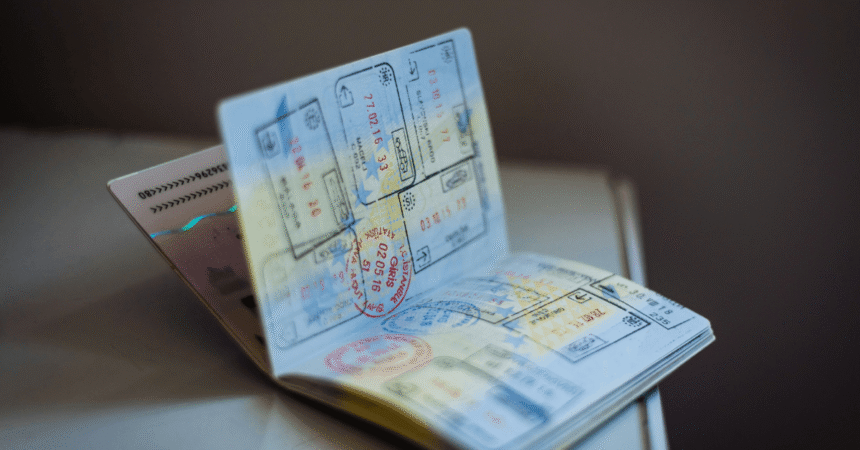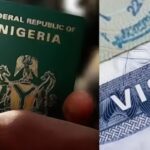The government of South Africa has announced a move to implement a new policy that is targeted at revolutionizing its immigration process with the launch of an AI-powered visa system.
The South African government announced that the AI-Powered visa system will help to streamline applications and enhance efficiency.
The country’s Department of Home Affairs announced the initiative on September 17, 2025, promising faster processing times and improved accuracy for travelers and immigrants seeking to enter the country.
Announcing the new policy, South Africa’s Home Affairs Minister Dr Leon Schreiber said he will demonstrate the new AI-Powered visa system under the Electronic Travel Authorisation (ETA) system, on Thursday, September 18, 2025.
Schreiber explained that the new AI-powered visa system is expected to leverage advanced algorithms to automate document verification, background checks, and eligibility assessments.
He added that by reducing human intervention, the system aims to cut processing times from weeks to days, addressing long-standing complaints about delays.
Schreiber also cited a recent issue in which 95 Libyan nationals allegedly sneaked into the country due to loopholes in the system that allowed them to collude with DHA officials to get falsified documents.
He asked how it is “possible that in the year 2024, in the age of AI and self-driving cars, the most developed country on the African continent still uses pens and pieces of paper that can be obviously manipulated, to grant access to our country”.
He continued: “It will use the same principles successfully used by the South African Revenue Service to completely automate not only the application process, but also the adjudication process for visas.”
Schreiber also explained that visa applicants will need to apply online, scan their passports, take a selfie, and provide other required information.
“Through machine learning technology, the ETA will check 40 different features of their passport to ensure it is authentic, it will match their selfie to the photo on their passport, and when they arrive at a port of entry, a camera will confirm that the face of the traveller who arrived is the same as the one who applied.
“In the first phase, we will roll out the ETA for simpler applications like tourist visas shorter than 90 days. But over time, our ambition is to roll it out for every visa category.
“The launch of the ETA, set for the end of September 2025, will boost tourism and investment, making South Africa more competitive, alleviating burdensome red tape when applying for a visa,” he added.
Schreiber further revealed that the South African government is working to implement a similar technological upgrade that will lead to major improvements to South African passport security
He revealed that a “systematic weakness” that allowed “syndicates” to exploit a lack of biometric verifications at the start of the application process is being closed.
“If the face on that photo does not match the face we have on record in the population register, the application is declined and the passport is not produced,” said Schreiber.
Reacting to the development, TransUnion Africa said the AI-powered visa system will help in recognising fraud and deepfake scams.
TransUnion said audio and video deepfakes accounted for 7% of all visa fraud incidents in 2024.
This was made known by Amritha Reddy, senior director of fraud product management at TransUnion Africa.
She said: “Cases of audio-based impersonation scams rose from 37% to 49% year-over-year, and video deepfakes doubled, fuelling identity theft, investment scams, and high-value authorised push payment fraud.
“What makes the current wave so alarming is the pace, scale, and realism of AI-powered deception. Bots operate around the clock, processing in milliseconds what used to take fraudsters days.”
Reddy added that “fake voices, synthetic documents, and fabricated videos are now often indistinguishable from reality, placing businesses, consumers, and governments under constant siege”.
“The only viable path forward is to fight AI with AI. Just as fraudsters harness machine learning to deceive, businesses must deploy AI-powered defences to protect.”





